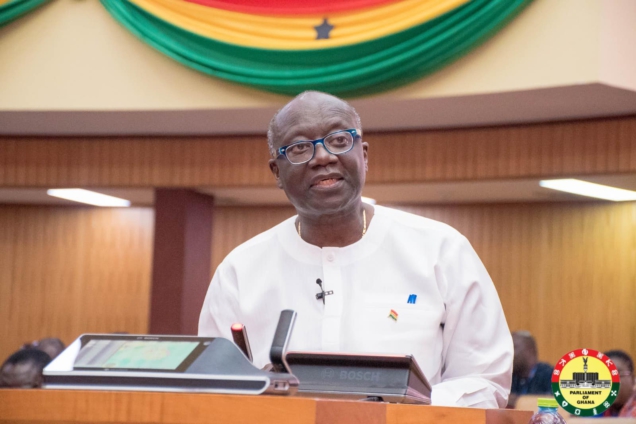Ghana hopeful of completing outstanding debt restructuring by September
The Government says it is hopeful of completing Ghana’s outstanding debt restructuring by September 2023 for a fruitful implementation of the US$3 billion International Monetary Fund (IMF) loan-support programme.
Mr Ken Ofori-Atta, Finance Minister said this when he provided an update on Ghana’s economy, the IMF programme and growth agenda on Sunday evening in Accra.
He said that the Government had “successfully worked with the Paris Club and other creditors to determine the parameters for official debt restructuring under the G20 common framework for debt treatment.”
The country was also in the process of getting a Memorandum of Understanding (MoU) with its bilateral creditors, Mr Ofori-Atta said, adding that “We expect to finalise these negotiations before the next review, which is in September.”
“We are at advanced stages of completing the debt exchange programme in relation to the cocoa bills and the US dollar denominated local bonds,” the Finance Minister said.
The IMF over the week concluded an assessment of Ghana’s preparedness for the first review of the $3bn loan-support programme, which had been scheduled for September, 2023.
The Fund noted that against a complex global economic backdrop, the Ghanaian economy was showing signs of stabilisation, with softening inflation, an increase in international reserves, and less volatile exchange rate.
However, the Fund reiterated that timely restructuring agreements with creditors was essential to secure the expected benefits of the Fund-supported programme.
A similar call was made by the IMF when its Executive Board approved Ghana’s loan-support programme in and a subsequent disbursement of a first tranche of $604m on Friday, May 19th, 2023.
There have been some concerns about the freeze on employment in the public sector as contained in the 2023 budget.
Responding to that, Mr Ofori-Atta said that the Government was intentional in ensuring that growth and job creation were not sacrificed in the process of restoring macroeconomic stability and debt sustainability.
He remarked that the Government was working to improve the business environment, reducing the cost of doing business and enhancing export competitiveness.
Local content legislations would be reviewed to encourage Foreign Direct Investment (FDI) while leveraging the opportunities offered by African Continental Free Trade Area (AfCFTA).
There would be the promotion of entrepreneurship through initiatives such as the YouStart Programme (to create more jobs) with the Banking Sector and Faith Based Organizations (FBOs).
Again, the Government said it would be fast-tracking the implementation of key growth-oriented programmes under the Ghana CARES (Obaatan Pa) Programme.
Those programmes included the Economic Enclave Projects to enable self-sufficiency in rice, maize, vegetables, and poultry, and supporting large-scale agriculture and agribusinesses interventions through the Development Bank of Ghana,
The Central Bank’s transitioning to a digital economy would boost productivity, tax collection, and formality, expanding digital government services and promoting the BoG’s digital currency for digitalisation and financial inclusion.
Mr Ofori-Atta said adequate measures were in place to strengthen policies to support climate change adaptation and mitigation for inclusive growth.
Ghana’s three-year PC-PEG programme is to provide balance of payment support as part of a broader effort to quicken the country’s recovery from an economic crisis induced by a pandemic, Russia-Ukraine war and internal structural problems.
It is to also help create the conditions for inclusive and sustainable growth and job creation, help to alleviate the exchange rate pressures and depreciating currency, and provide a catalytic effect on additional sources of financing.



